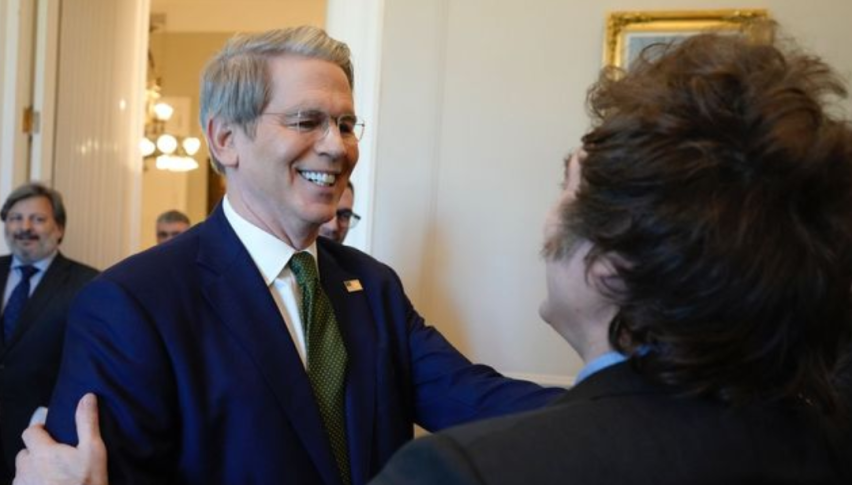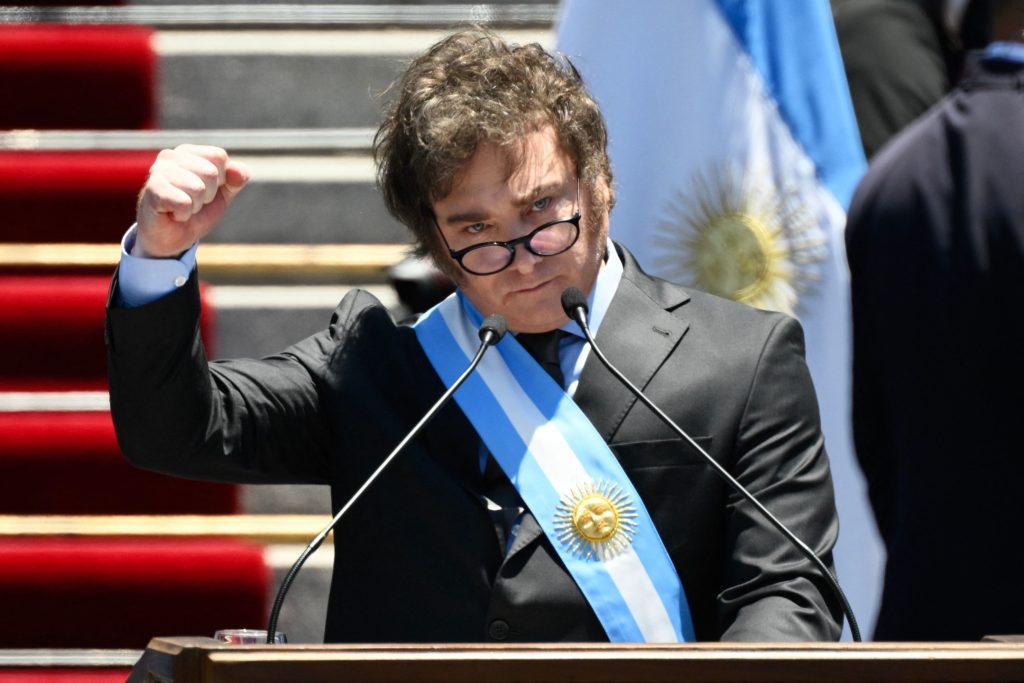U.S. Banks Scrap Argentina’s US$20B Deal
Dollar-denominated sovereign bonds dropped across the board, led by the Global GD35 (-0.8%) and Bonar AL30 (-0.7%).

Quick overview
- U.S. banks have withdrawn support for a $20 billion rescue package for Argentina, opting instead for a smaller $5 billion short-term financing line.
- Argentina's Ministry of Finance claims ongoing negotiations with banks are being misinterpreted by the media, asserting that progress is being made.
- Market reactions to the news have been negative, with Argentine assets declining sharply and country risk increasing significantly.
- The financing package is crucial for President Javier Milei's economic strategy aimed at restoring confidence and accessing international debt markets.
U.S. banks have backed away from the US$20 billion rescue package for Argentina that the U.S. Treasury had announced.

According to The Wall Street Journal (WSJ), the banks are instead considering a smaller short-term financing line worth US$5 billion.
WSJ reported that the Treasury’s rescue plan—expected to be arranged by JPMorgan, Bank of America, and Citi—had been put on hold.
Argentina’s Ministry of Finance, however, told local media that they are “working on several fronts” and that everything is “moving in the right direction.” Economy Minister Luis Caputo also weighed in on social media, dismissing the report. When an X user asked him about the U.S. press claims, he replied: “Great question,” implying skepticism toward the story.
According to the ministry—and as confirmed by local outlets—the U.S. financial daily appears to have misinterpreted the ongoing talks with banks, confusing them with the Treasury’s official announcement.
The U.S. version indicates that banks are working on a short-term repo line of about US$5 billion, through which Argentina could swap an investment portfolio for dollars provided by the banks.
Market Reaction: Argentine Assets Slide
Argentine markets fell sharply on Friday, November 21, after rumors circulated about a smaller-than-expected U.S. loan. With trading volumes low due to the holiday, the reaction was swift.
Dollar-denominated sovereign bonds dropped across the board, led by the Global GD35 (-0.8%) and Bonar AL30 (-0.7%). As a result, country risk rose 4.4% to 647 basis points.
This financing package is a central pillar of President Javier Milei’s economic strategy, aimed at restoring confidence, lowering country risk, and regaining access to international debt markets. After a sweeping victory in the legislative elections, the administration secured the political strength it sought to push forward reforms and deepen its economic overhaul. But the latest reports have once again injected uncertainty into that roadmap.
- Check out our free forex signals
- Follow the top economic events on FX Leaders economic calendar
- Trade better, discover more Forex Trading Strategies
- Open a FREE Trading Account
- Read our latest reviews on: Avatrade, Exness, HFM and XM